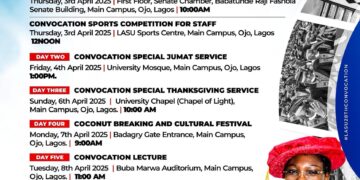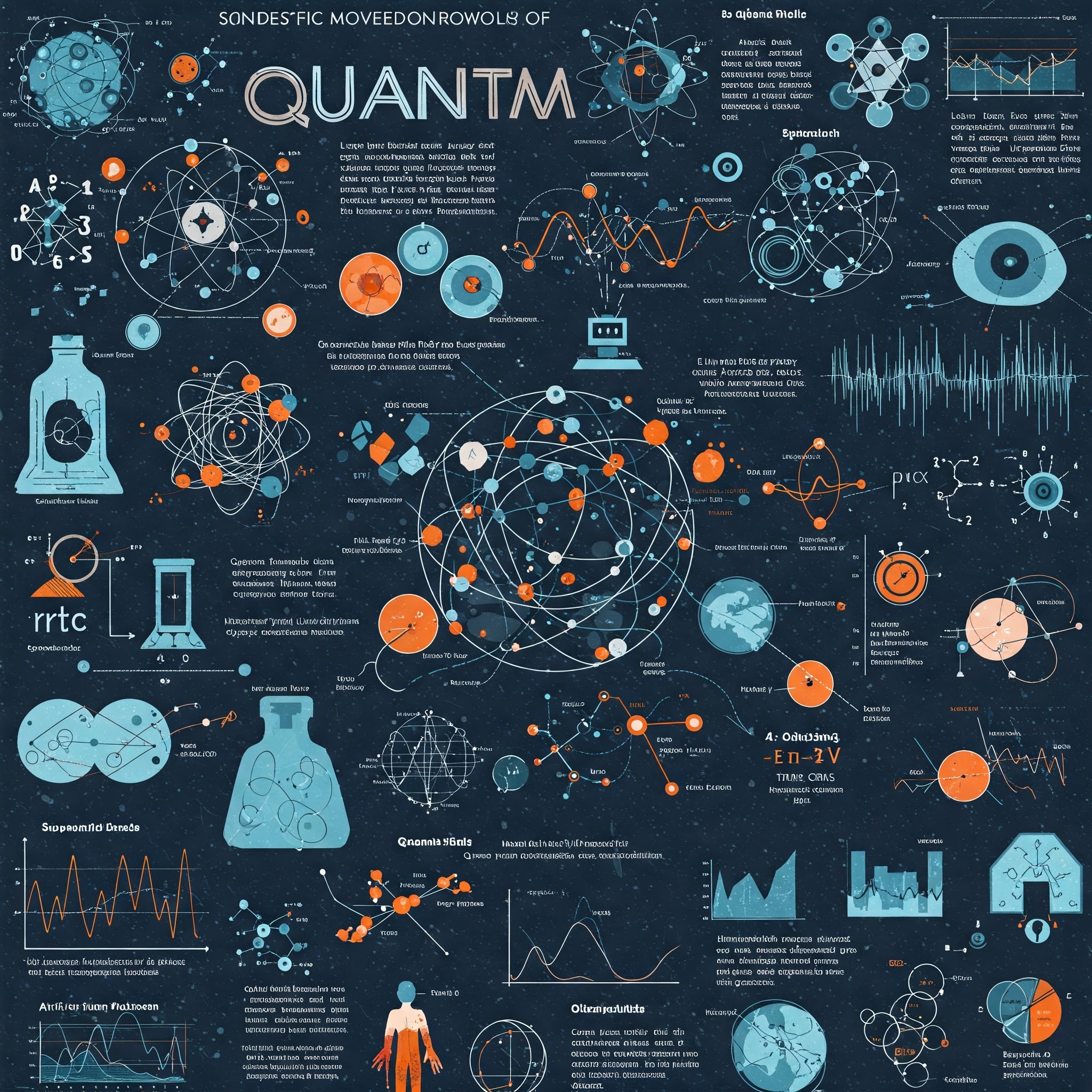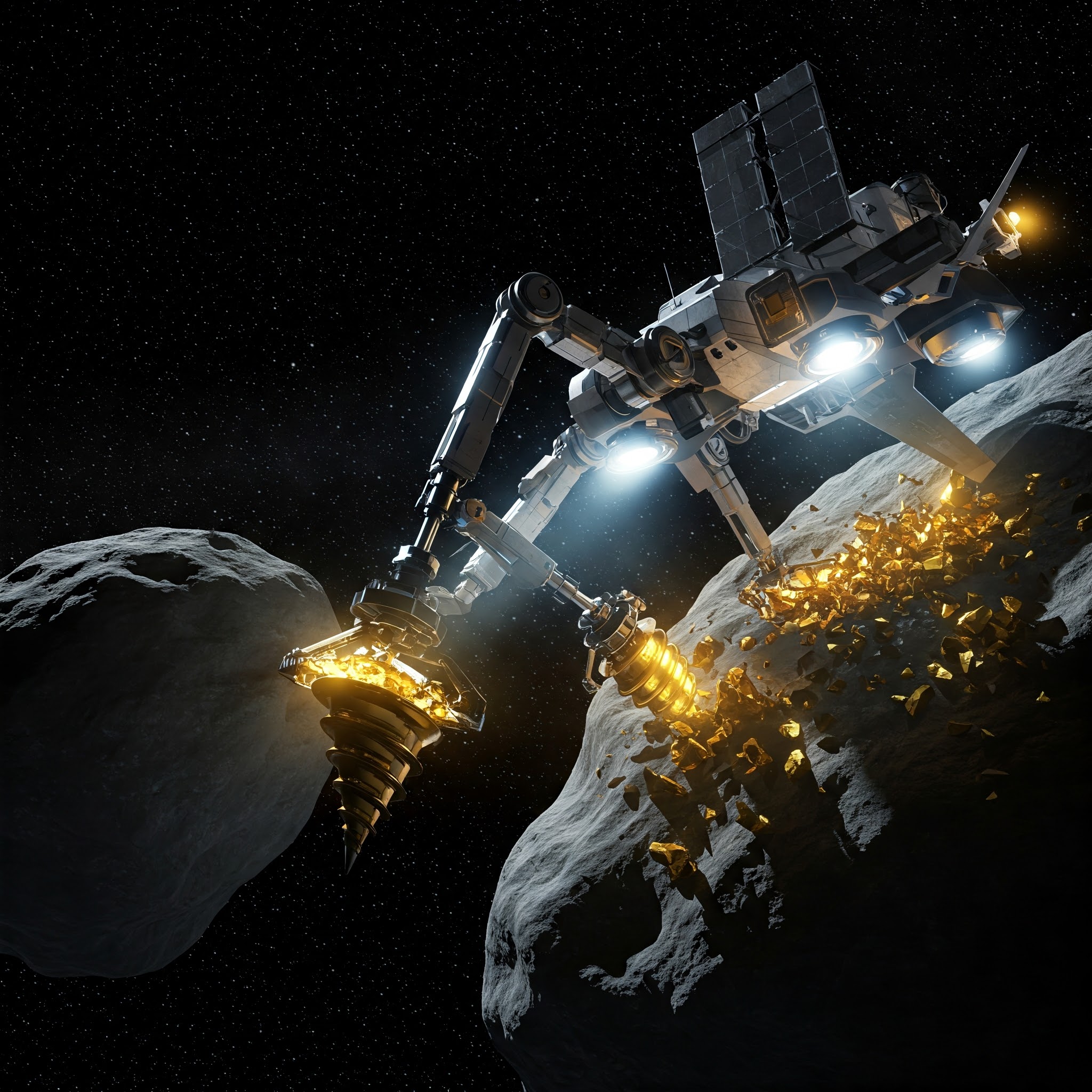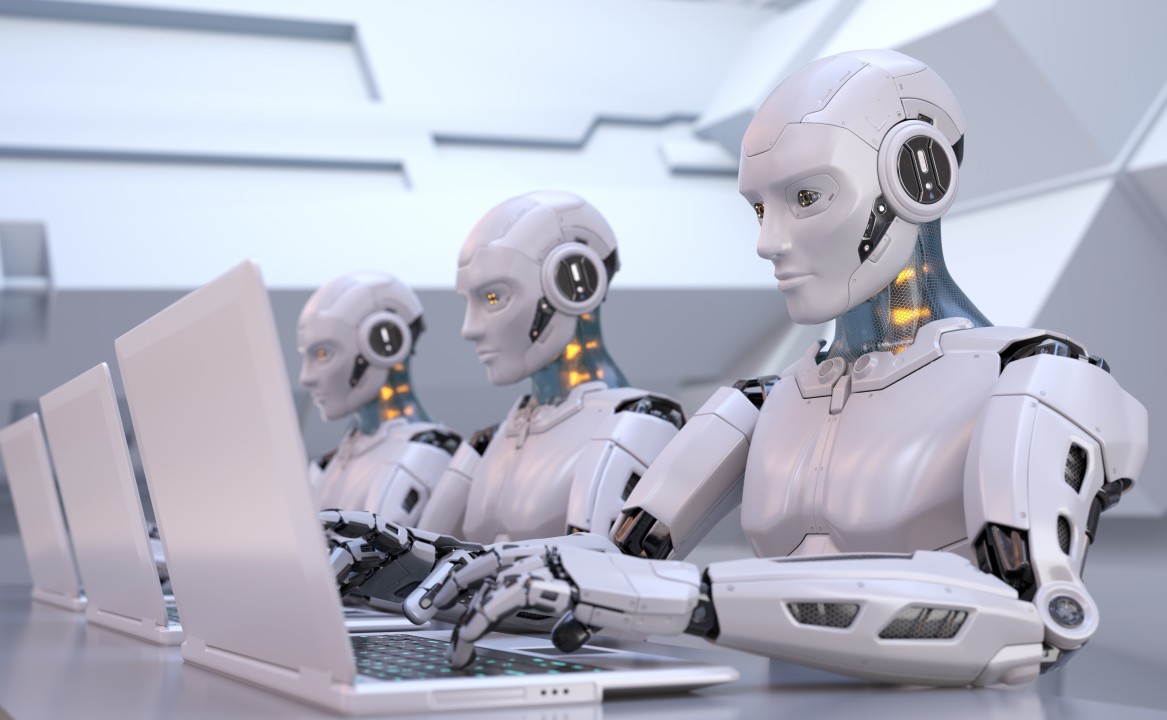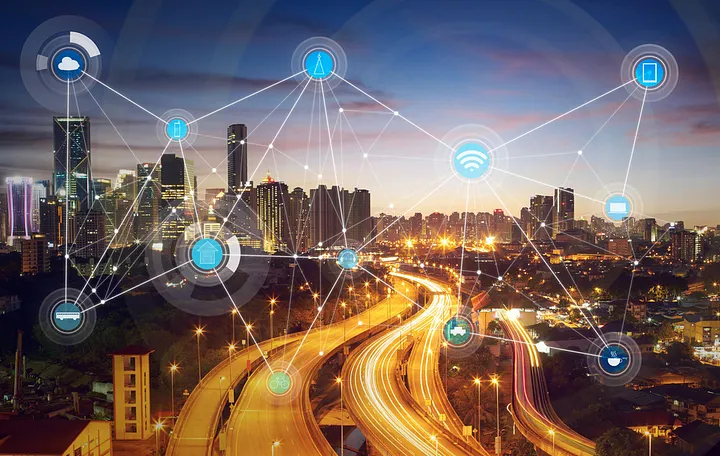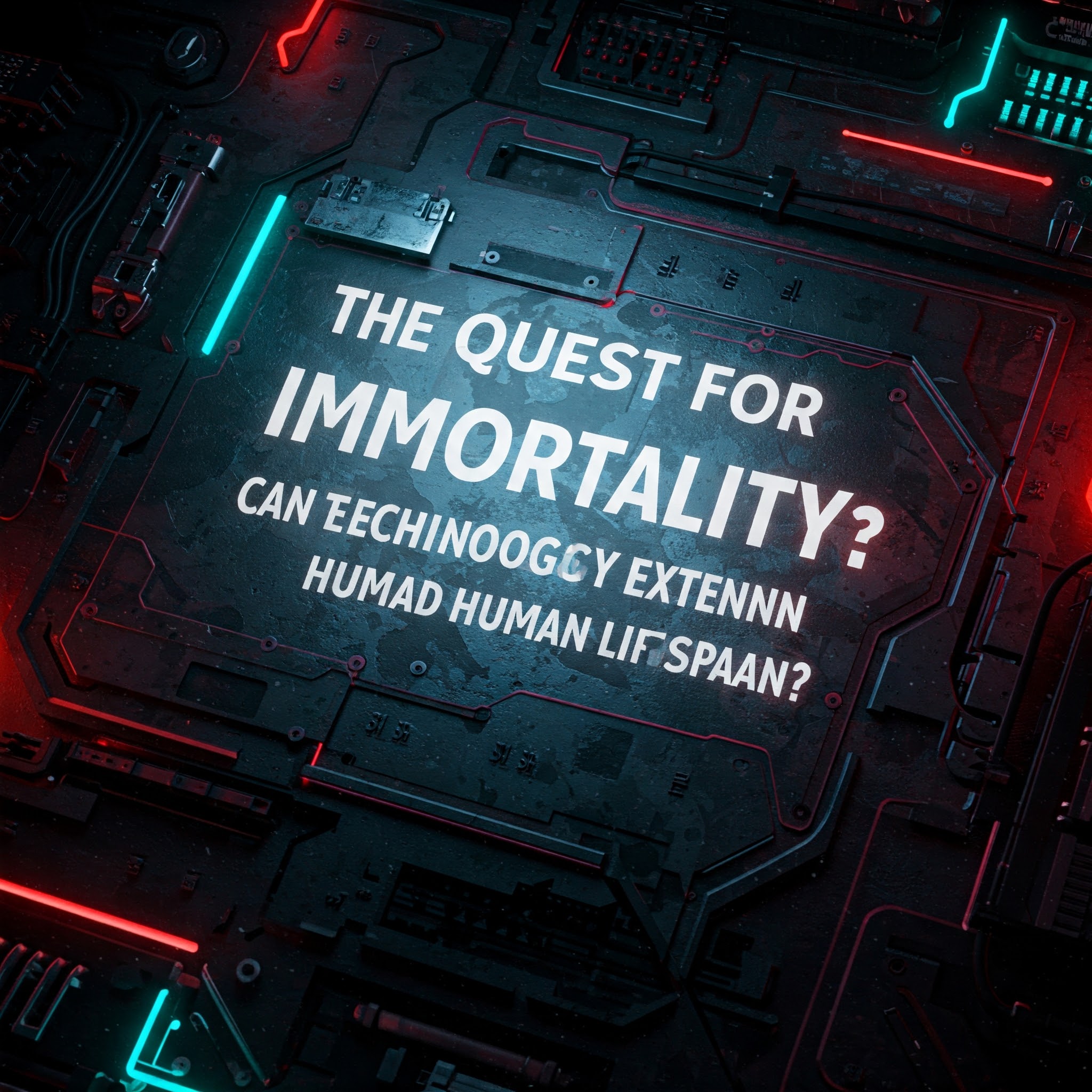AI and the Future of Work: Will Robots Take Our Jobs?
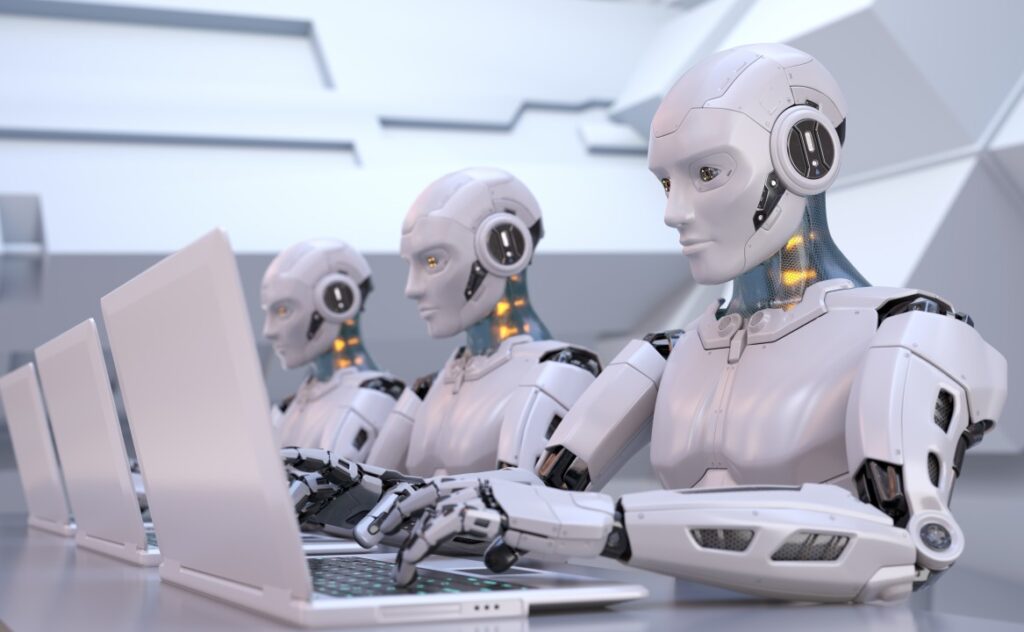
Summary
Artificial Intelligence (AI) has rapidly evolved, causing waves of debate surrounding its impact on the workforce. Will simulated intelligence and mechanical technology supplant human positions? This paper investigates how man-made intelligence is changing different areas, the kinds of positions generally defenseless to mechanization, the potential for work creation, and the cultural results of this shift. It will likewise examine both hopeful and critical perspectives, taking into account the difficulties and amazing open doors simulated intelligence presents in reshaping the fate of work.
Introduction
The mix of Artificial Intelligence (AI) into the labor force has become perhaps of the most controversial subject in the cutting edge age. As the abilities of computer based intelligence, AI, and mechanical technology keep on propelling, questions flourish about the eventual fate of work: Will robots genuinely supplant human laborers? Will simulated intelligence dispose of whole businesses, or will it make new jobs for individuals?
This subject is of significant importance as social orders and economies all around the world are confronted with the sped up ascent of robotization innovations. Artificial intelligence has proactively influenced enterprises like medical care, money, transportation, and client support. While a few view man-made intelligence as a power for effectiveness and efficiency, others stress over its capability to dislodge a huge number of laborers, especially in jobs that are standard and unsurprising.
This paper digs into the inquiry: Will robots take our positions? It investigates both the open doors and difficulties that artificial intelligence presents, looking at the eventual fate of work from the perspectives of financial, cultural, and innovative movements. To comprehend this intricate issue, the conversation will zero in on a few key perspectives:
AI and Mechanization Advances: What are the critical headways in simulated intelligence that are influencing the labor force, and which jobs are in danger of being robotized?
The Effect on Business: How might computer based intelligence impact different areas and ventures, and how might occupations be re-imagined?
AI and Occupation Creation: Might man-made intelligence at any point set out new open doors? Assuming this is the case, how could laborers be prepared for the jobs representing things to come?
Moral and Cultural Contemplations: What moral worries emerge as artificial intelligence takes on jobs generally held by people? What cultural effects will computerization have on various socioeconomics?
Strategy Reactions and Transformation: How could legislatures, organizations, and instructive establishments adjust to the progressions simulated intelligence is bringing to the work market?
By dissecting these variables, this paper plans to offer an extensive perspective on how man-made intelligence is molding the fate of work, adjusting fears of employment cutback with hopefulness for additional opportunities.
What is Artificial Intelligence (AI)?
Artificial Intelligence (AI) refer to the reproduction of human knowledge in machines. These frameworks are modified to think, learn, and take care of issues in a way like people. AI is a wide field cover different sub-disciplines, including normal language handling, mechanical technology, and brain organizations.
AI: The center of most man-made intelligence headways, it includes preparing calculations to learn designs in information. For instance, AI powers suggestion frameworks like those utilized by Netflix or Amazon.
Normal Language Handling (NLP): This innovation empowers machines to comprehend, decipher, and produce human language. Uses of NLP incorporate menial helpers like Siri or Alexa.
Advanced mechanics: Robots, frequently coordinated with simulated intelligence, are intended to perform undertakings that generally required human actual work. In production lines, for example, robots perform dull and exact errands like gathering, welding, and bundling.
Understanding man-made intelligence is fundamental since it offers experiences into how these advancements are being taken on across ventures and the potential they hold for mechanizing different work capabilities.
The Development of artificial intelligence and Mechanization
By and large, mechanization has been utilized in businesses to increment efficiency, decrease costs, and work on quality. The modern upset saw machines supplant physical work in production lines, and in the twentieth 100 years, robotization extended to assembling plants, office work, and, surprisingly, some assistance enterprises. Man-made intelligence is essentially the following advancement in this pattern, yet its capability to deal with additional complicated undertakings has raised cautions.
Early Robotization: Straightforward automation like sequential construction systems or self-checkout stands supplanted boring human work.
Present day artificial intelligence: With computer based intelligence’s capacity to learn, adjust, and improve, it can perform mental errands, for example, breaking down information, simply deciding, and in any event, collaborating with clients.
This development of robotization is changing the working environment in key ways, requiring a more profound comprehension of what jobs are helpless and which ones might flourish.
The Rise of New Jobs and Opportunities
While computer based intelligence also known as AI can possibly kill occupations in certain areas, it likewise holds the commitment of setting out new open doors. Man-made intelligence can prompt the advancement of businesses and fields that didn’t exist previously.
Computer based intelligence Programming and Upkeep: As man-made intelligence frameworks become more complex, the interest for gifted laborers to fabricate, keep up with, and further develop these frameworks is developing.
Computer based intelligence Morals and Guideline: With the rising mix of man-made intelligence into society, there will be a requirement for experts who have some expertise in artificial intelligence morals, strategy, and guideline to guarantee that computer based intelligence is utilized capably.
Human-computer based intelligence Coordinated effort: In numerous ventures, artificial intelligence won’t supplant laborers altogether yet will expand their work. Experts in fields like regulation, advertising, and training will work close by artificial intelligence apparatuses to build efficiency and productivity.
Difficulties and Risks
Regardless of the commitment of simulated intelligence driven work creation, there are critical provokes that should be tended to. These difficulties incorporate the relocation of laborers, the computerized partition, the requirement for retraining, and the moral worries encompassing man-made intelligence use.
Work Dislodging: As simulated intelligence computerizes routine undertakings, numerous specialists might end up out of a task. This could prompt more noteworthy pay disparity and social agitation.
Retraining and Reskilling: Laborers dislodged by simulated intelligence will require new abilities to flourish in the arising position market. Instructive establishments, organizations, and states should put resources into reskilling programs.
Moral Worries: man-made intelligence’s capacity to go with independent choices brings up moral issues, for example, predisposition in man-made intelligence calculations, security issues, and responsibility for man-made intelligence driven choices.
Getting ready for What’s to come: What Needs to Change?
To guarantee a future where computer based intelligence benefits society all in all, different partners should adjust and plan for these changes.
Instruction and Preparing: Schooling systems should develop to underscore STEM (Science, Innovation, Designing, and Math) abilities, artificial intelligence education, and deep rooted learning.
Government Approaches: State run administrations should acquaint strategies with deal with the progress, like all inclusive essential pay (UBI), joblessness protection, and artificial intelligence guideline.
Business Transformation: Organizations should offset innovative advancement with a human-focused way to deal with guarantee that laborers are not abandoned.
The Financial Effect of artificial intelligence on Positions
Man-made intelligence’s effect on the economy is intricate, and it holds the possibility to both disturb and support monetary development. Via mechanizing assignments and expanding efficiency, computer based intelligence can diminish costs and further develop effectiveness. Nonetheless, the rearrangement of riches and pay, coming about because of computerization, will probably have broad consequences for money disparity and work rates.
Efficiency Gains and Economic Development: As simulated intelligence keeps on propelling, organizations can utilize it to smooth out tasks and increment efficiency. This can prompt more cutthroat organizations and monetary development. For instance, computer based intelligence driven advancements in farming can improve crop yields, diminishing the requirement for work while expanding creation effectiveness.
Work Polarization: man-made intelligence is supposed to make an enraptured work market. Normal, manual, and low-talented positions are generally helpless to computerization, while high-gifted positions in innovation, the board, and other high level fields are probably going to develop. This shift could worsen pay imbalance, leaving low-talented specialists without satisfactory business open doors or remuneration.
Provincial Variations: Various districts and nations will be impacted by man-made intelligence in various ways. More affluent nations with admittance to state of the art simulated intelligence advancements might encounter development in artificial intelligence related ventures, while lower-pay districts might battle to adjust to the changing position scene. As computerization grabs hold, emerging nations that depend intensely on minimal expense work could confront huge disturbance.
The financial outcomes of man-made intelligence are about employment cutback as well as about how the increases from artificial intelligence efficiency will be dispersed and whether they will help the more extensive populace or just a chosen handful.
The Social and Mental Effect of Artificial Intelligence and Mechanization
Past the monetary results, artificial intelligence likewise makes significant social and mental impacts. As mechanization changes how work is organized and performed, it could affect people’s feeling of direction, work fulfillment, and social standing.
Employment Cutback and Character: For some, work isn’t just about bringing in cash yet additionally about personality and social association. The departure of a task to robotization can cause profound misery, particularly when the specialist’s job has been attached to their self-esteem. Individuals might battle to track down new work, and for those in networks with restricted admittance to schooling or reskilling open doors, this turns into a much more prominent test.
The Tension of Mechanical Change: The quick speed of innovative change is a wellspring of nervousness for laborers. Individuals might feel that they are by and large abandoned by simulated intelligence, particularly in enterprises that are not effectively versatile to mechanization. This makes cultural strain and vulnerability about how to get ready for an obscure future.
AI and Human Association: A few callings, especially those including human communication (e.g., medical care, instruction, and social administrations), may battle to keep up with the human touch when undertakings are taken over by machines. The deficiency of sympathy and customized care in areas where human contact is essential could bring about a reduction in nature of administration, influencing people’s prosperity.
The social and mental impacts of AI should be viewed as in any conversation about robotization. As artificial intelligence keeps on molding the labor force, tending to the close to home and mental cost for laborers will be a significant piece of the discussion.
Moral Worries and Artificial intelligence’s Job in the Work environment
The boundless utilization of computer based intelligence in the work environment raises a progression of moral inquiries. As machines assume control over additional mental errands, we should wrestle with issues connected with reasonableness, responsibility, and straightforwardness. Moral worries include:
Tendency in AI Frameworks: Perhaps of the most squeezing moral worry in man-made intelligence is the potential for predisposition. Man-made intelligence frameworks are prepared on information, and in the event that the information contains predispositions (whether in light of race, orientation, financial status, and so forth), the man-made intelligence framework will probably replicate and enhance those predispositions. With regards to employing, for instance, one-sided calculations could unreasonably disservice certain gatherings of candidates, sustaining disparity in the working environment.
Observation and Protection: Artificial intelligence fueled reconnaissance frameworks, for example, facial acknowledgment and representative checking programming, have raised worries about security and individual flexibilities. As businesses carry out artificial intelligence driven devices to follow representative execution and conduct, there is a gamble of excess, which might disregard protection privileges and make a culture of doubt in the work environment.
Responsibility for AI Choices: As computer based intelligence takes on more dynamic jobs, deciding responsibility for its activities turns into a basic issue. Assuming an artificial intelligence framework makes a blunder that causes hurt, for example, in medical services or transportation, who ought to be considered capable? Should the engineer, the client, or the computer based intelligence itself be responsible? These inquiries feature the requirement for moral structures and guidelines that administer the utilization of simulated intelligence in the working environment.
Moral structures should develop pair with man-made intelligence headways to guarantee that these advances are utilized in a manner that advances reasonableness, responsibility, and straightforwardness.
Simulated intelligence and the Changing Idea of Work
As Artificial Intelligence reshapes ventures, the actual idea of work itself will change. While certain positions might be completely robotized, numerous others will be expanded by man-made intelligence, prompting a change in how people cooperate with machines in the working environment.
Human-AI Cooperation: Rather than review artificial intelligence as a trade for human laborers, numerous associations are taking on a model where people and machines cooperate. For example, in fields like medical services, simulated intelligence can assist specialists with diagnosing sicknesses all the more precisely, yet the specialist stays answerable for settling on the last choice. This cooperative energy can upgrade the efficiency and viability of laborers, permitting them to zero in on more significant level, more imaginative assignments.
Expertise Movements: As computerization takes over redundant errands, laborers should foster new abilities that supplement artificial intelligence. These abilities could incorporate capacity to appreciate anyone at their core, decisive reasoning, innovativeness, and complex critical thinking — regions where people actually outflank machines. For instance, laborers in imaginative enterprises (e.g., scholars, architects) should adjust to teaming up with simulated intelligence devices that improve their inventiveness and efficiency.
Work Upgrade: As opposed to disposing of occupations, artificial intelligence will probably change how they are performed. Conventional work jobs will move, and new sorts of half breed jobs will arise. For instance, client support specialists might advance into computer based intelligence mentors, liable for guaranteeing that artificial intelligence frameworks are working really while additionally giving human oversight. This shift will expect laborers to embrace ceaseless learning and adjust to new mechanical apparatuses.
The fate of work may not be tied in with supplanting people with machines but rather about making new, more unique jobs that consolidate the best of both human aptitude and machine effectiveness.
Conclusion
Embracing a Human-AI Future
The fate of work in a man-made intelligence driven world is one of change, not disposal. While certain positions will be lost to mechanization, numerous new open doors will emerge, and people will keep on assuming a basic part in the work environment. The test lies in guaranteeing that laborers are outfitted with the abilities and potential open doors expected to flourish in this new scene.
Through a mix of proactive strategies, continuous instruction, and moral contemplations, man-made intelligence can be a device that supplements human work as opposed to replaces it. As we push ahead, coordinated effort between laborers, organizations, states, and instructive establishments will be fundamental to make a future where people and computer based intelligence can coincide and upgrade each other’s capacities.
Hope you had a great read!

